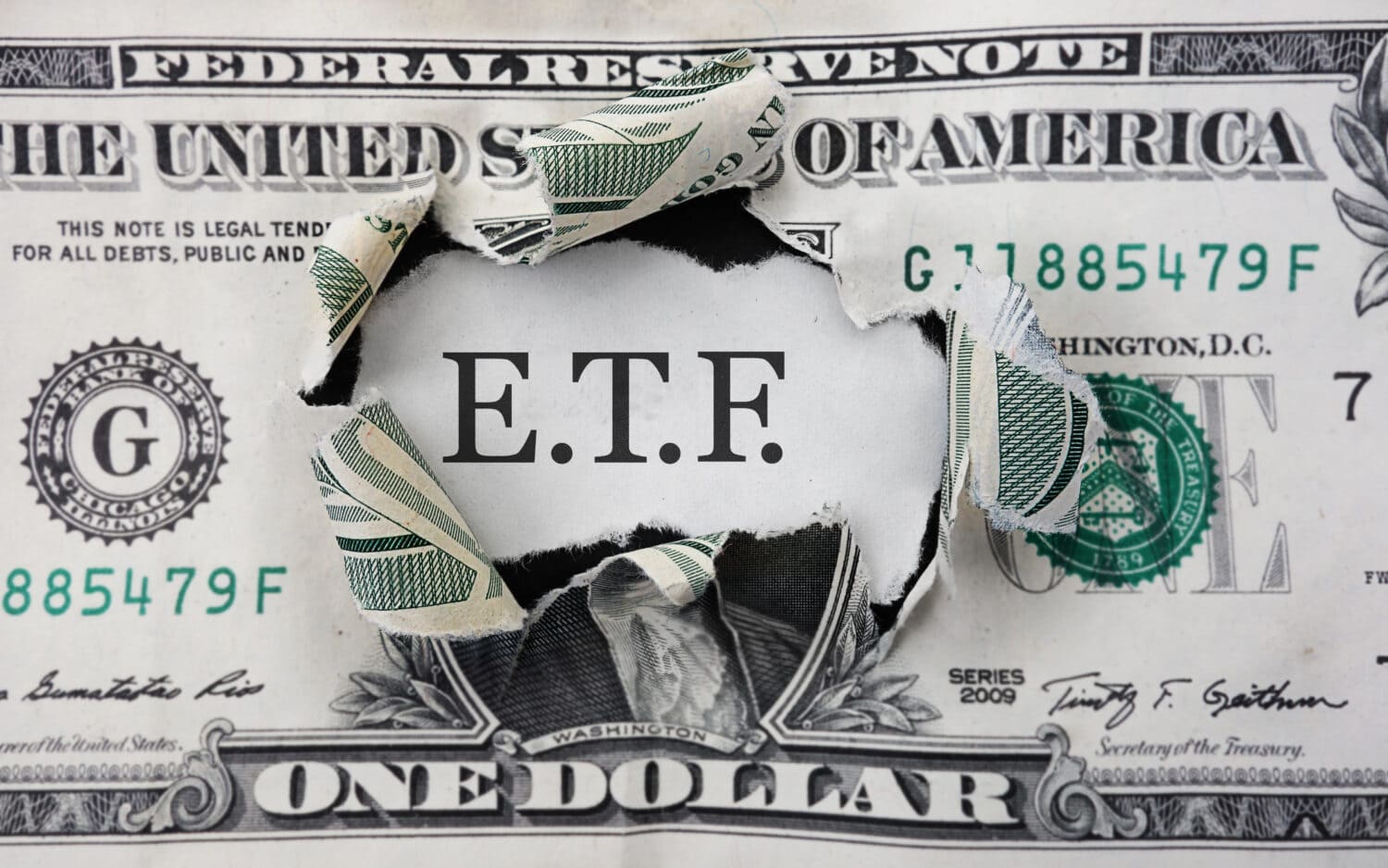
Artificial intelligence is revolutionizing industries and driving economic growth at an unprecedented pace. It seems like only yesterday that AI started making the headlines, and now it is everywhere!
The potential for AI-driven companies has soared, making them an attractive investment option. Even if your starting capital is only $1,000, you can get a decent amount of exposure to the AI industry.
We’ll guide you through ten of the most promising AI stocks below. Some of these are purely AI stocks, while others are companies that utilize AI heavily. We’ve also included two AI-focused ETFs for those who want easy exposure to several different companies at once!
You should consider reading our brand-new “The Next NVIDIA” report for a deep dive into AI winners to help you choose the best AI companies to invest in.
1. Alphabet

Alphabet (NASDAQ: GOOG), the parent company of Google, is a leading tech giant that’s heavily investing in AI. Its core business, search, is powered by advanced AI algorithms.
Google’s AI investment extends beyond search. Their AI is revolutionizing healthcare through projects like DeepMind’s AlphaFold, which predicts protein structures, aiding in drug discovery. Google AI is also at the forefront of self-driving technology with Waymo, aiming to reshape transportation.
2. Microsoft

Microsoft (NASDAQ: MSFT) is another tech behemoth with a strong focus on AI. As you might imagine, they’re also readily innovating new AI applications. Its cloud platform, Azure, offers many AI services for developers. They’re also incorporating AI into their existing tools, like Office 365. Microsoft’s gaming division is also exploring ways to use AI to revolutionize the gaming experience.
3. Amazon

Amazon (NASDAQ: AMZN) is well-known as an e-commerce giant, but they’re also actively implementing AI across its operations. AI can power the company’s recommendation systems, supply chain management, and customer service. Amazon Web Services is also developing a robust platform for AI development.
4. Apple

Apple (NASDAQ: AAPL) is mostly recognized for its hardware, but the company also integrates AI into its products. One prominent example is Siri, Apple’s virtual assistant. Additionally, Apple utilizes AI for tasks such as image processing, facial recognition, and other features. Apple’s emphasis on user privacy also reflects the increasing significance of ethical AI.
5. NVIDIA

NVIDIA (NASDAQ: NVDA) is a leading designer of graphics processing units (GPUs), which are essential for training AI models. GPUs are absolutely vital for AI development, and NVIDIA has some of the best on the market. This company’s GPUs are used to power data centers and high-performance computing systems all over the globe.
6. C3.ai

C3.ai (NYSE: AI), an AI-focused software company, specializes in enterprise AI applications. The company provides pre-built AI models and platforms tailored for various industries, such as healthcare and energy. C3.ai aims to assist businesses in leveraging AI to enhance efficiency, cut costs, and create new revenue sources.
Of course, not everyone likes this stock. Read a differing opinion in our 3 AI Stocks I Wouldn’t Touch With a 10-Foot Pole guide.
7. Palantir Technologies

Palantir (NYSE: PLTR) develops software platforms for data analysis and integration. Its software is utilized by several government agencies to uncover patterns from very large datasets that would be impossible for humans to sort through. This company’s AI capabilities allow organizations to sort through their data and make good decisions.
8. Salesforce

Salesforce (NYSE: CRM) is a leading customer relationship management platform with a growing focus on AI. The company integrates AI into its products to enhance sales and customer service. Its AI-powered tools assist businesses in personalizing customer interactions and improving sales productivity.
9. Global X Funds Global X Robotics & Artificial Intelligence ETF

BOTZ (NASDAQ: BOTZ) is an ETF that invests in companies that are involved in robotics and artificial intelligence. It offers investors exposure to many companies with a single investment, making it a good choice for those who don’t feel confident choosing their own AI companies to invest in. Of course, this ETF invests in automation and robotics companies, too, not just AI companies.
This slightly broader exposure does make the ETF a bit less risky. If the AI industry falls out of the sky, you’d be less affected, thanks to the broader exposure to robotics companies, too.
10. iShares Robotics and Artificial Intelligence Multisector ETF

IRBO, like BOTZ, is an exchange-traded fund that specifically targets companies within the robotics and artificial intelligence sectors. By investing in IRBO, individuals can gain exposure to a broad range of companies involved in the development and utilization of AI technologies across various industries. This diversification can potentially mitigate risk and capture opportunities within the rapidly evolving AI landscape.
Risks of Investing in AI Stocks

Investing in AI stocks can seem very promising, but it is also very risky. The AI industry is brand new and subject to significant volatility. Stock prices can fluctuate dramatically, especially in pure AI stocks. Technology breakthroughs, regulatory changes, and market sentiment all happen and change rapidly.
The AI landscape is also very competitive. Not all companies will succeed, and there are few major players. Investing in unestablished AI companies is risky, and practically all AI companies currently fall into this category.
Furthermore, the regulatory environment surrounding AI is still evolving. Governments around the world are struggling to deal with AI’s ethical implications and potential risks, and new regulations could impact the operations and profitability of AI companies.
Despite the risks, the long-term outlook for AI is undeniably positive. AI has the potential to revolutionize countless industries, from healthcare and transportation to finance and entertainment. The key is balancing these rewards with the potential risks.
You should consider a diversified approach to investing. Don’t choose one AI stock and invest $1,000 into it. Instead, break up your capital into several stocks, including established tech giants and AI-focused companies.
ETFs can help you do this easily, though you can also choose your own companies to invest in.
Thank you for reading! Have some feedback for us?
Contact the 24/7 Wall St. editorial team.



